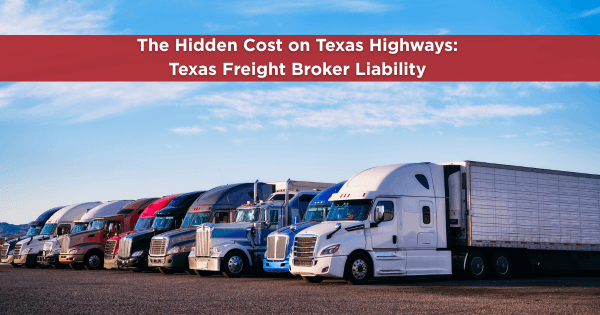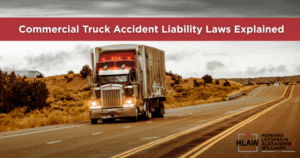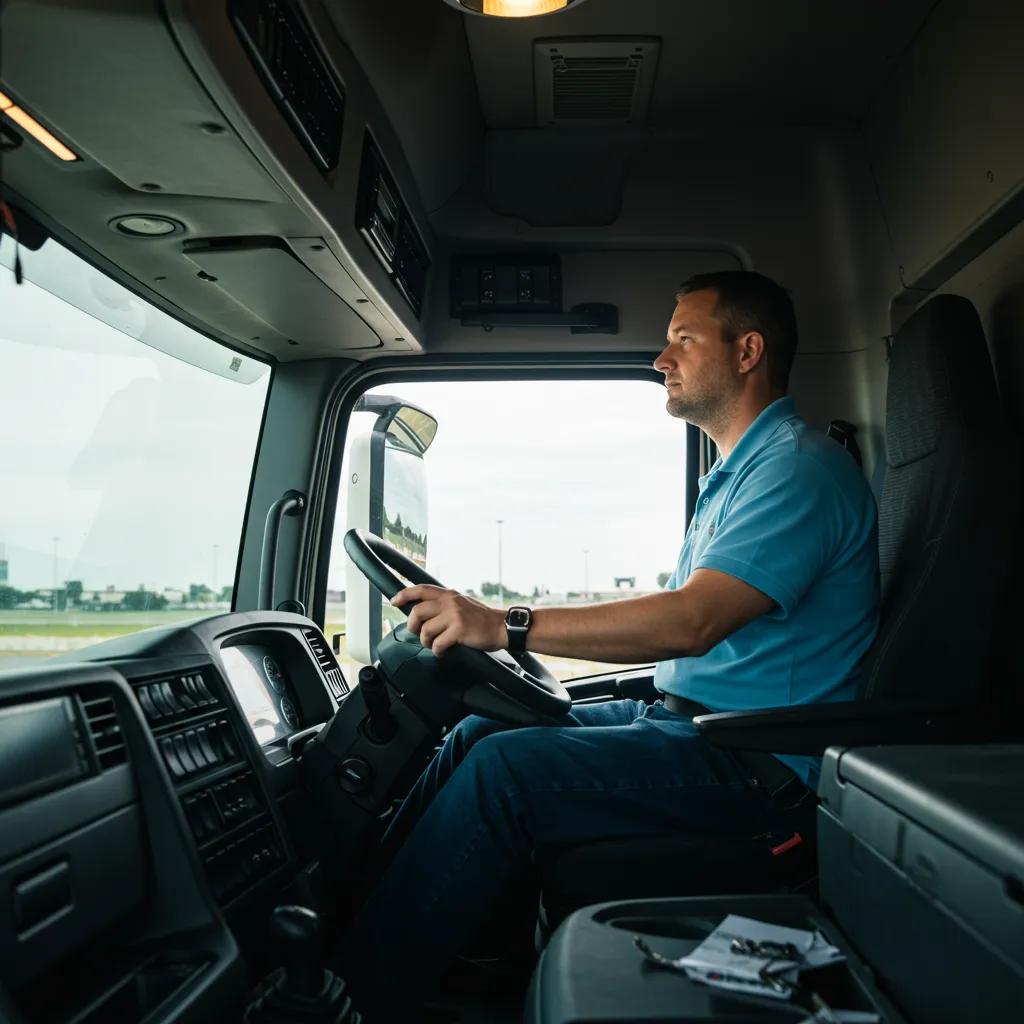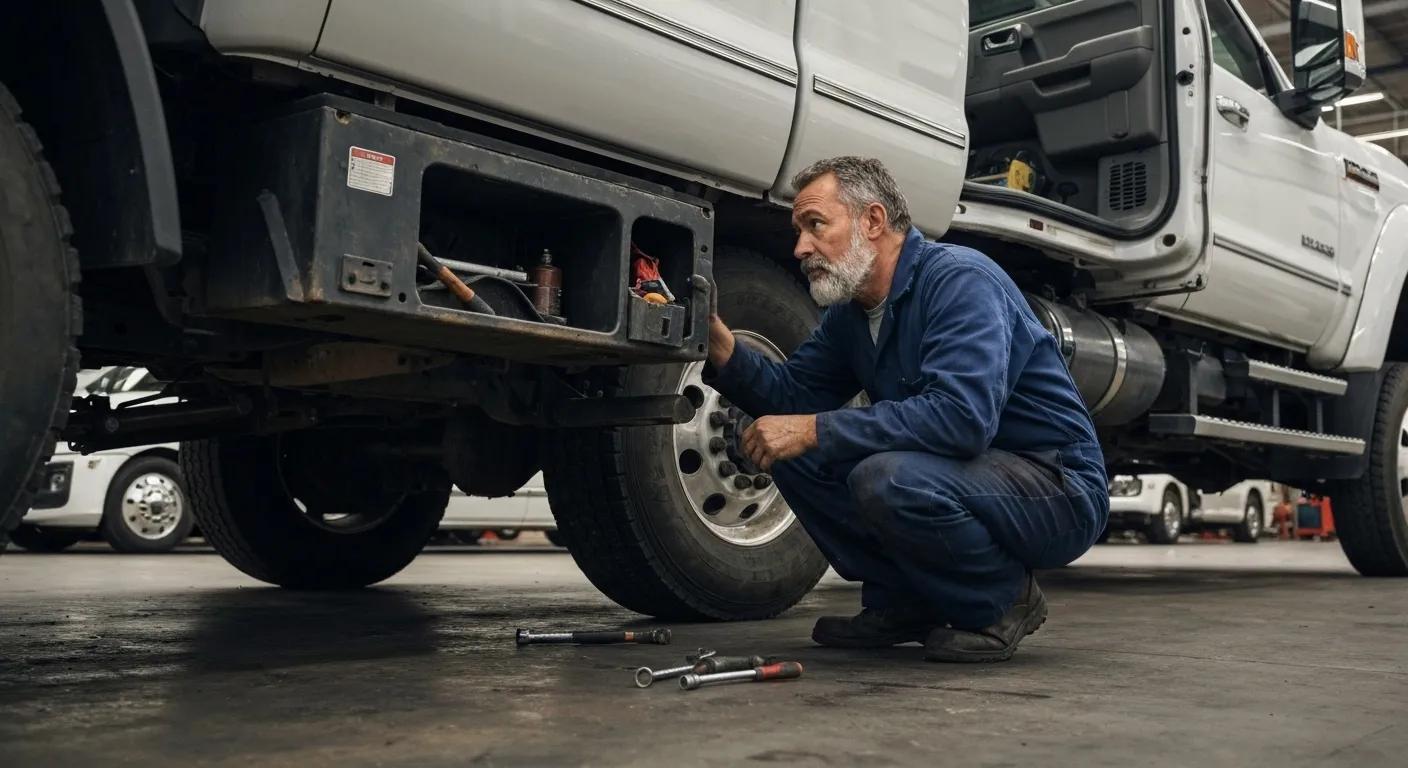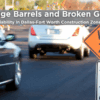
Understanding Texas Commercial Truck Accident LiabilityBanned But Not Broken: Why Texting Truck Drivers Still Threaten Texas Roads

Banned but Not Broken: Truck drivers texting behind the wheel are still a leading cause of serious accidents on Texas highways.
Distracted truck driving, particularly involving phones and electronic devices, is continuing to be a major and ever-growing problem on Texas highways. Annually, thousands of accidents across the U.S. involve large trucks, with a significant portion attributed to driver inattention. Here is an in-depth look at the issue, the legal rules that apply, and how injury victims can enforce their rights under Texas and federal law.
Distracted Driving: A National Crisis on Our Highways
The statistics paint a grim picture of the dangers posed by distracted driving, especially when it involves large commercial trucks. According to the National Highway Traffic Safety Administration (NHTSA) and the Federal Motor Carrier Safety Administration (FMCSA):
- In a recent year, distracted driving was a factor in over 3,100 traffic fatalities across the U.S.
- While specific truck-only distracted driving statistics can vary, studies indicate that truck drivers are often involved in crashes where distraction is a contributing factor, with cell phone use being a leading cause.
- The economic cost of crashes involving large trucks is substantial, running into billions of dollars annually, encompassing medical costs, lost productivity, property damage, and legal expenses.

These numbers highlight the urgent need for stricter enforcement, better driver education, and advanced preventative measures to combat this pervasive issue.
The Dangers of Distracted Truck Driving in Texas
Texas has witnessed an alarming rise in commercial truck crashes due to driver distraction. Truck drivers are increasingly involved in serious and fatal accidents caused by texting, app use, and other phone-related distractions. The sheer size and weight of commercial trucks mean that even minor distractions can lead to catastrophic outcomes. Just a four-second glance at a phone while driving 55 mph is enough for a truck to travel the length of a football field without looking at the road, dramatically increasing the risk of a catastrophic collision. The consequences can be devastating, leading to severe injuries, fatalities, and extensive property damage.

Understanding the Types of Distraction
Distracted driving is generally categorized into three main types, all of which pose significant risks for truck drivers:
- Manual Distraction: This occurs when a driver takes one or both hands off the steering wheel to perform another task, such as reaching for a phone, adjusting a GPS, or eating. For truck drivers, this could include manipulating a CB radio, adjusting cargo, or reaching for paperwork.
- Visual Distraction: This involves taking eyes off the road, even for a split second. Examples include looking at a phone screen, observing an accident on the roadside, or reading a map. For truck drivers, this might involve observing roadside billboards, checking mirrors excessively, or looking at a dispatch screen.
- Cognitive Distraction: This is perhaps the most insidious, as it involves the driver’s mind wandering from the task of driving. Thinking about personal problems, engaging in intense conversations, or being preoccupied with a phone call (even hands-free) can significantly impair reaction time and decision-making. For truck drivers, this could involve intense route planning, worrying about delivery schedules, or engaging in complex mental calculations.
For truck drivers, who operate vehicles requiring constant attention and quick reflexes, any combination of these distractions can have dire consequences, especially given the longer stopping distances and larger blind spots of commercial vehicles.
Texas Law: Statutes Banning Distracted Driving
Texas Transportation Code § 545.4251 prohibits all drivers, including truckers, from using a portable wireless communication device to read, write, or send electronic messages while operating a motor vehicle, unless the vehicle is stopped. The law specifically bans texting, emailing, and using apps, even at red lights if the vehicle is in operation. This legislation was enacted to enhance road safety by directly addressing a leading cause of accidents. This legislation underscores Texas’s commitment to reducing preventable accidents and ensuring safer roads for all motorists.
The law provides a few exceptions, such as using a device for emergencies, navigation, or to report a crime or hazard. Novice drivers with a learner’s permit may not use a cell phone at all during the first six months of driving. Drivers under 18 are not permitted to use any wireless device, even hands-free, except in an emergency. All drivers are banned from using handheld devices in marked school zones, and school bus drivers carrying minors cannot use a device unless the bus is stopped or there’s an emergency.
Texting while driving is a primary offense, so police may stop and cite drivers solely for this violation. First-time offenders face fines between $25 and $99, with subsequent violations subject to fines of $100 to $200. Where a distracted driver causes a serious crash resulting in injury or death, the offense is elevated to a Class A misdemeanor with potential penalties of up to one year in jail and a $4,000 fine.Texas Transportation Code § 545.4251
Texas law strictly prohibits the use of portable wireless communication devices while driving.
Federal Rules: Truckers and Phone Use
Federal law establishes even stricter requirements for commercial vehicle operators. Under49 CFR § 392.80, truck drivers are expressly prohibited from texting while driving. Under 49 CFR § 392.82, commercial vehicle drivers may not use hand-held cell phones to make a call, dial by pressing more than one button, or reach for a device in a way that requires moving from a seated driving position. These stringent federal regulations are in place due to the increased potential for severe harm when large commercial motor vehicles are involved in accidents, and to ensure uniformity across state lines for interstate commerce.
Truck drivers must use hands-free technology if they need to communicate. FMCSA violations carry steep penalties: drivers can be fined up to $2,750, while motor carriers can be fined up to $11,000 per violation if they permit or require drivers to break these rules. 49 CFR § 392.80, 49 CFR § 392.82

Preventative Measures and Industry Responsibility
While individual driver responsibility is paramount, trucking companies also bear a significant role in preventing distracted driving. Effective preventative measures include:
- Robust Company Policies: Implementing clear, strict policies against cell phone use and other distractions while driving, with consistent enforcement to ensure compliance and accountability.
- Driver Training and Education: Regular training programs that emphasize the dangers of distracted driving, the specific legal requirements, and safe driving practices, often incorporating real-world case studies.
- In-Cab Monitoring Systems: Utilizing technologies like dashcams and driver-facing cameras that can detect and alert drivers to distracted behavior, providing real-time feedback and data for coaching and performance improvement.
- Telematics and ELDs: Leveraging Electronic Logging Devices (ELDs) and telematics systems to monitor driving behavior, identify patterns of distraction, and ensure compliance with hours-of-service regulations, which can indirectly reduce fatigue-related distractions.
- Hands-Free Technology: Providing and mandating the use of hands-free communication devices to ensure drivers can communicate safely when necessary, minimizing manual and visual distractions.
By adopting these measures, trucking companies can foster a culture of safety and significantly reduce the incidence of distracted driving among their fleet.
Civil Liability for Distracted Driving Truck Accidents
These statutes do more than penalize drivers—they serve as the legal standard of care in civil lawsuits for personal injury or wrongful death. When a truck driver violates Texas Transportation Code § 545.4251 or the FMCSA rules and an accident results, that violation is strong evidence of negligence under Texas law.
This legal principle, known as negligence per se, means a court can find a truck driver and their employer responsible purely based on proof of the law violation, simplifying the burden of proof for victims. This significantly streamlines the legal process for victims, as they primarily need to prove the violation occurred and directly caused their injuries, rather than having to establish the general standard of care. Attorneys for victims will subpoena crucial evidence such as cell phone records, app data, dashcam video, truck telematics (including Electronic Control Module/black box data), and eyewitness testimony to establish the violation and resulting harm.
Texas uses a comparative fault rule: injured victims may recover damages as long as they are not more than 50 percent responsible for the crash. Damages typically include medical bills, rehabilitation, lost wages and future income, pain and suffering, punitive damages for gross negligence, and, in fatal cases, wrongful death compensation. Texas Civil Practice & Remedies Code § 33.001
Case Law: How Texas Courts Handle Distracted Driving Claims
Texas appellate courts consistently uphold verdicts where injury victims prove a truck driver was distracted by a phone or other device. Courts rely heavily on a comprehensive array of evidence, including phone logs, GPS records, electronic data from the truck’s systems, and eyewitness testimony. The legal framework in Texas allows for both the distracted driver and the trucking company (under theories of vicarious liability or negligent entrustment/supervision) to be held accountable, exposing them to substantial civil liability when a clear link between distraction and causation is established.
Steps to Take After a Distracted Truck Crash
Crucial steps to take immediately following a distracted truck crash:
- Call 911 and make sure law enforcement responds and fully documents the scene, including any observations of driver distraction.
- Take photos and videos of the accident scene, vehicle damage, road conditions, and any visible evidence of phone or device use. Preserve physical and digital evidence, and get witness contact information.
- Ask the investigating officer to look for signs and evidence of phone or device use by the truck driver and to include this in their report.
- Contact a knowledgeable truck accident attorney immediately to secure cell phone records, electronic data (such as black box data), and company logs before evidence is lost or destroyed.
- Cooperate with your medical providers and follow all treatment recommendations, which will help document your injuries for your legal case.
HLAW Holds Distracted Truck Driver’s Accountable
Distracted driving by truckers is preventable, is strictly prohibited by both Texas and federal law, and causes needless tragedy for countless families every year. The legal standards make it much easier for victims to prove liability when a commercial driver violates these straightforward cell phone and texting bans. If you or a loved one have suffered from a truck accident caused by distracted driving, taking immediate legal action is essential to protect your rights and secure the compensation you deserve.
At Howard Lotspiech Alexander & Williams, PLLC (HLAW) we have significant experience representing individuals who have been injured by distracted truck drivers. We know and understand the relevant statutes and regulations that form the foundation for holding distracted truck drivers accountable and we have a proven track record with complex evidence (such as cell phone data and black box records). HLAW will fight aggressively against big trucking companies and insurers. Let HLAW guide you through every step of your claim, stand up to the trucking industry, and help restore justice for you and your family.
Contact HLAW today for a Free Consultation
Ready to Fight for Your Rights?
Don’t let a distracted truck driver’s negligence ruin your future. Our experienced legal team is ready to provide the aggressive representation you need and get the justice you deserve. Because, skilled and experienced legal help can make all the difference when your future is on the line.
About the Author
Jesse J. Lotspeich is a seasoned trial attorney and partner at Howard Lotspeich Alexander & Williams, PLLC, where he leads the firm’s Personal Injury practice.
Raised in the small West Texas town of Crane, Jesse was instilled early with a strong work ethic and a sense of duty to others. After earning his B.A. cum laude from Howard Payne University and his J.D. from Texas Tech University School of Law, Jesse went to work in Fort Worth advocating for victims with serious injuries caused by the neglect of others.
Jesse specializes exclusively in personal injury litigation, and he carries that focus into every case—whether it’s catastrophic auto or trucking accidents, wrongful death, workplace injuries, or defective products. Known for being a staunch advocate in the courtroom, he personally handles depositions, case investigations, and all trial-level work, never shying from a fight on behalf of his clients.

